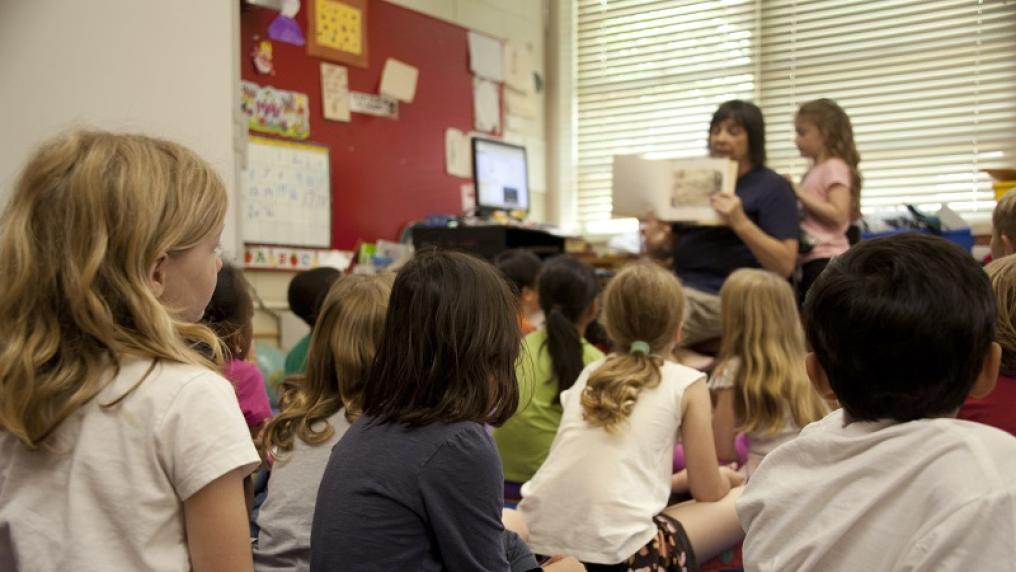The education system is failing those who need it most

Now, more than ever, young Australians need education in order to thrive in a complex and uncertain world. But new evidence shows our education system is not up to the task.
This week, the Mitchell Institute released the second landmark Educational Opportunity in Australia (PDF) report. It is the first major study to look at how well our whole education system is performing against the ambitious goals agreed to last year in the Alice Springs (Mparntwe) Declaration.
The declaration commits Australia to creating an education system that promotes excellence and equity. It also commits Australia to supporting all young people to become successful lifelong learners, confident and creative individuals, and active and informed members of the community.
While sometimes dismissed as ‘nice to haves’, this year — characterised by global uncertainty and ever-present technology — has taught us that the skills and capabilities outlined in the declaration are critical.
However, alarmingly, around 30 per cent of young adults are not meeting the aims of the declaration. That means more than 100,000 thousand young people are entering adulthood each year without the skills and capabilities needed to meaningfully participate socially, democratically and economically.
The results relating to social background are even more damning, with educational success persistently linked to a student’s social and economic circumstances. Students from disadvantaged backgrounds are more likely to arrive at school developmentally vulnerable. During school they are less likely than their peers to develop key academic skills or be proficient users of technology, they report lower levels of creativity and confidence and they are less likely to gain a Year 12 or equivalent qualification.
By the age of 24, just over 50 per cent of young people from the lowest socioeconomic decile have a post-school qualification or are currently working towards one, compared to a touch over 73 per cent nationally.
Given the growing importance of educational qualifications in today’s labour market, it is hardly surprising then that at the same age, only one in two young adults from the lowest socioeconomic background are fully engaged in employment or education, compared to around 70 per cent nationally.
Our demonstrable failure to prepare tens of thousands of young Australians, particularly those from less wealthy households, for success in their adult years clearly highlights the urgent need for a major reform agenda.
The answers in education are not quick fixes, but are about the system doing more, and doing better, for every student every day. There is now overwhelming evidence that we must start in early childhood — a critical time to lay the foundations for successful lifelong learning as well as emotional and physical wellbeing.
More than 20 per cent of children are developmentally vulnerable when they start school, with rates much higher among Aboriginal children and those from socioeconomically disadvantaged households. A sustained focus by governments on providing, high quality early education for all, with additional support for the most vulnerable, is the key to ensuring all Australian children get the best possible start. The report finds that about 30 per cent of young adults are not adaptable to change and open to new ideas.
In the school system, we need to ensure education fosters the capabilities today’s young people will need to navigate a constantly changing world. The evidence clearly shows that Australia needs to more effectively support students from low socioeconomic backgrounds to succeed. In the long term, a quality universal early childhood system will help improve the outcomes of students from disadvantaged backgrounds. Meanwhile, improved targeting of funding and support aimed at boosting capability and the quality of teaching and leadership, in our most disadvantaged schools, remains a key priority.
Our vocational and higher education sectors need to work more closely together to provide a universal tertiary system that enables any student from any background to develop the skills they need for success in their lives and in their work. Providers need to work closely with industry to strengthen young adults’ employment prospects.
The number of young people not in education, employment or training was already unacceptably high. The COVID-19 recession has made the situation worse. The recession has weakened the prospects for those completing studies this year at school, TAFE or university. The Mitchell Institute report suggests that the tertiary sector needs further reform to give young people the best chance of success.
For example, our vocational education system needs to move away from the current competency model to develop broader capabilities. This would help young adults to become more adaptable to the change that they will face throughout their working lives.
Another key to increasing the employability of young adults, is extending work-based learning into new occupations and industries. A recent Mitchell Institute report proposes a National Job Cadet Program to enable young adults to combine work experience with appropriate learning in vocational or higher education, similar to apprenticeships, but in a broader range of occupations.
Our education system as a whole, from early childhood to schools and tertiary education, needs substantial reform, investment and enhancement to meet the needs of young Australians. We must aim for all young Australians from all backgrounds to be successful in work and life. With the support they deserve that should be possible.
First published in The Australian. Reproduced with permission.



